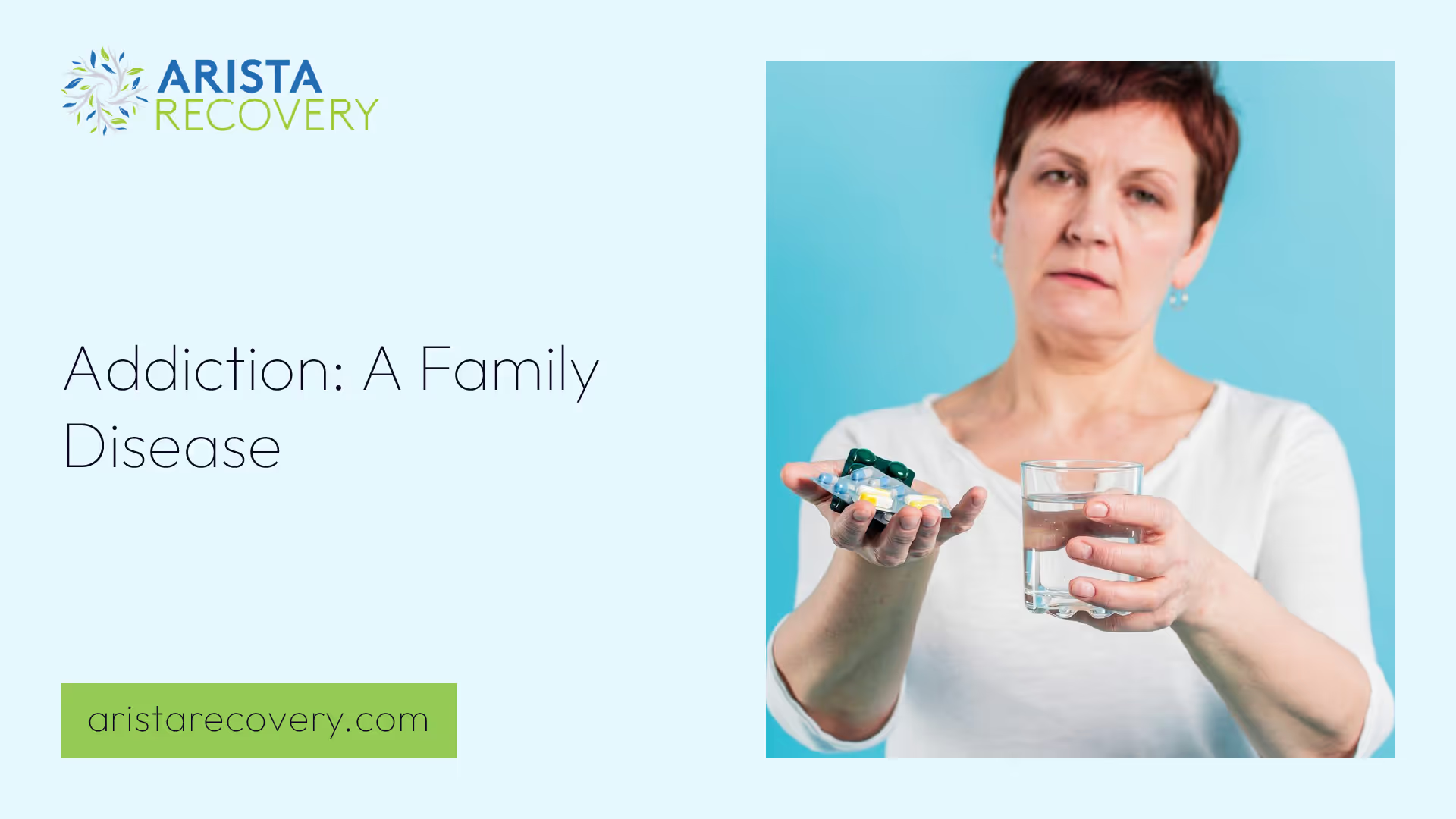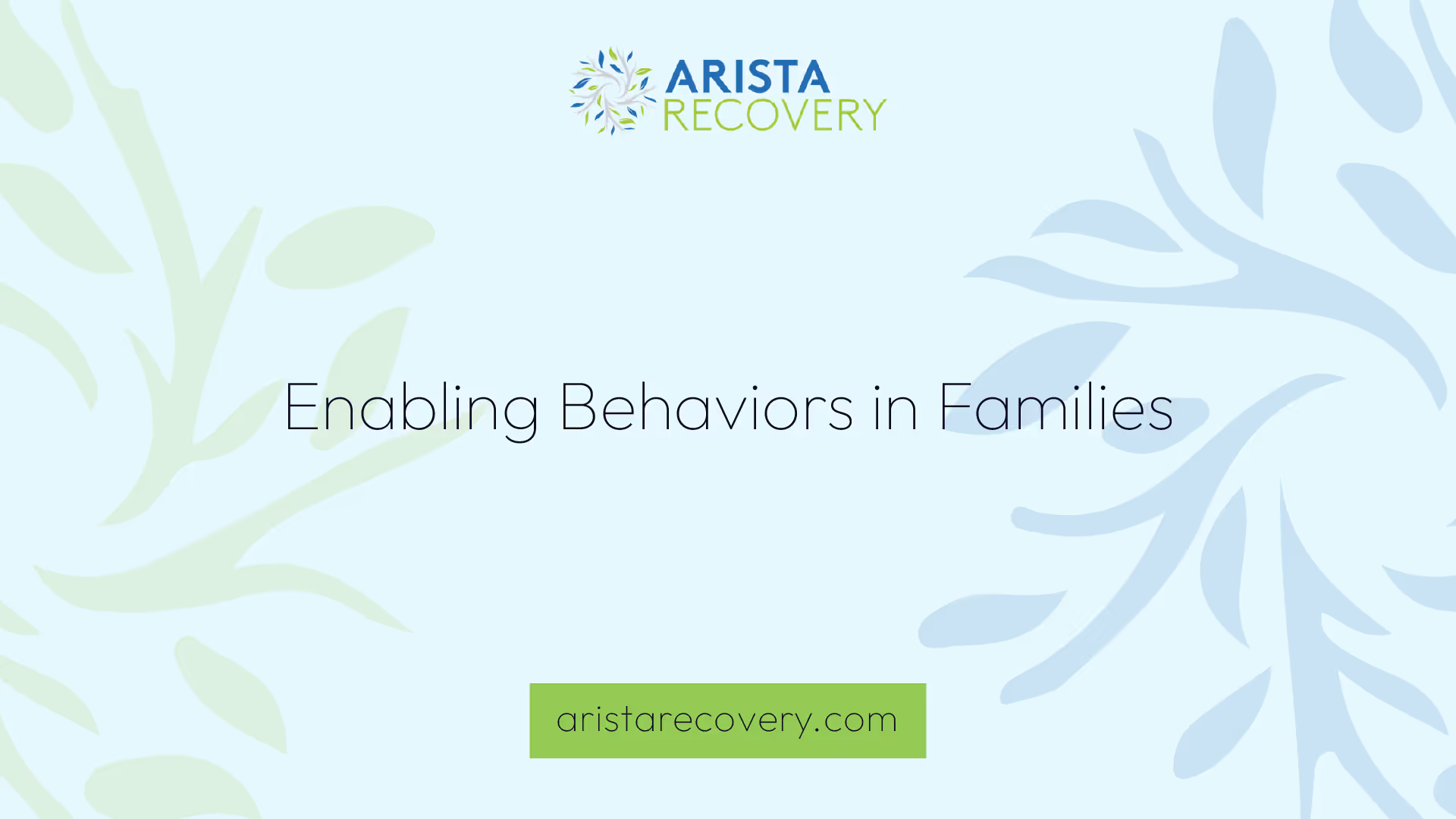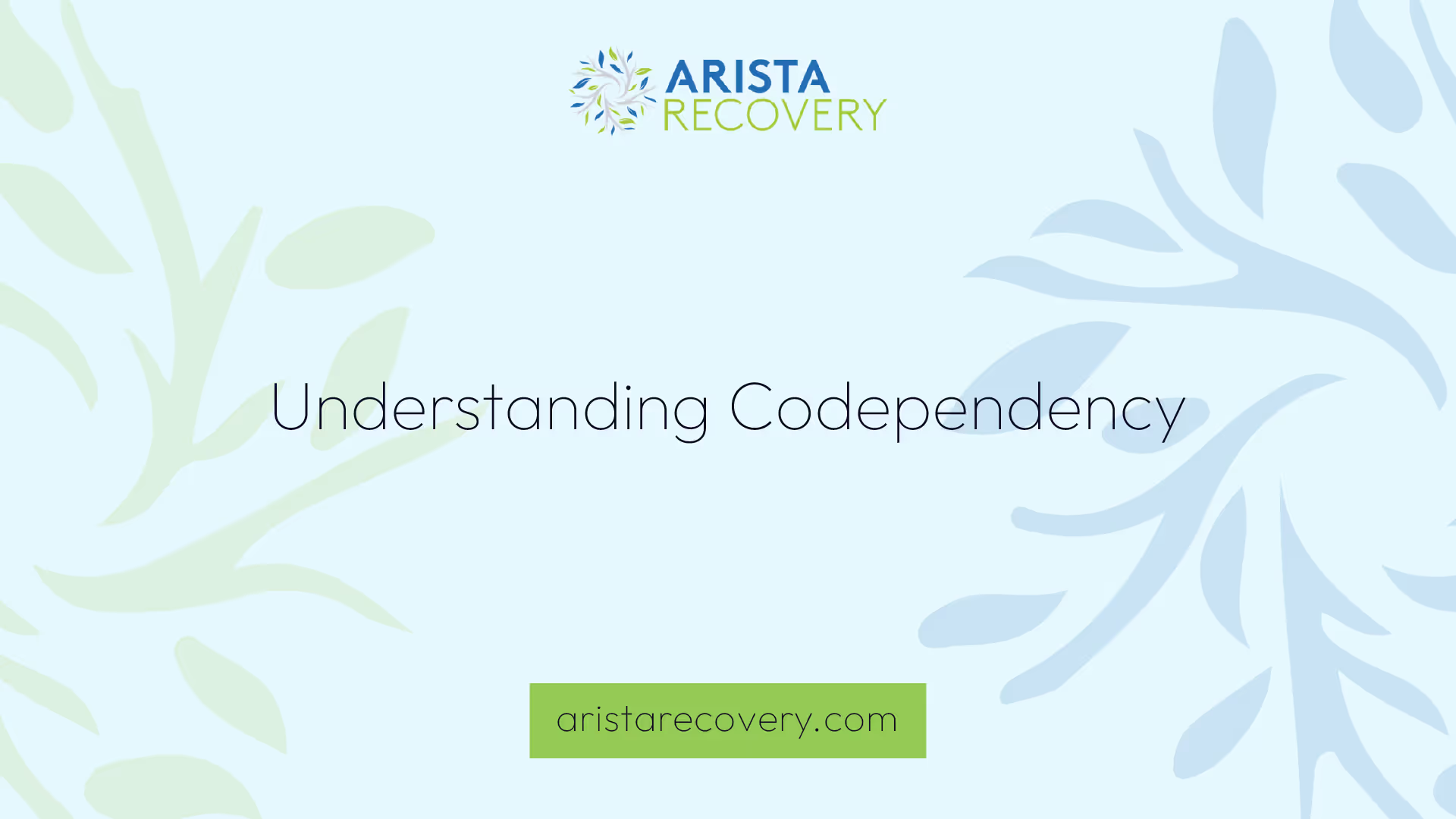Addiction: A Family Disease


Impact of Addiction on Families
Substance use disorder is not just a personal struggle; it is a collective battle that deeply affects entire families. Understanding the impact of addiction on families is essential for addressing the multifaceted challenges they face.
Strained Relationships and Conflict
Addiction can severely strain family relationships by causing conflict and trust issues. This often leads to a breakdown in communication, feelings of guilt, and shame among significant others. Parents may feel helpless and confused, while children can sense the strain and disconnect created by addiction. The ongoing turmoil can disrupt family harmony and create a toxic environment.
Financial Burdens and Responsibilities
Financial problems frequently arise within families dealing with addiction. The individual's habits, lost jobs, unpaid bills, or new expenses related to the situation can create significant financial strain. Other family members may need to work extra jobs or take on additional responsibilities to maintain the household [1].
Data from (SAMHSA)
Emotional Trauma and Stress
Addiction can lead to emotional trauma within families, causing health issues, medical bills, and overwhelming stress for both the individual using substances and other family members. Witnessing the progression of addiction can result in trauma and negatively impact mental health. The emotional toll can manifest as anxiety, depression, and other psychological disorders, further complicating the family dynamic.
Understanding that addiction is indeed a family disease is the first step towards seeking appropriate help and intervention. For more information on how families can navigate the challenges of addiction, explore our articles on top ways to cure your addiction and alcoholism and your loved one doesn’t need a formal intervention.

Enabling Behaviors in Families
Addressing the enabling behaviors within families is an important step in confronting addiction: a family disease. These behaviors often arise from a place of love and concern but can unintentionally perpetuate the addiction.
Unintentional Support for Addiction
Families often unknowingly enable addiction by offering support and assistance to the addicted individual. This can inadvertently allow or support the continuation of the substance abuse problem [1]. Enabling behaviors are actions or attitudes that inadvertently support and perpetuate an individual’s addiction. Common enabling behaviors include:
- Financial Support: Providing money that may be used to purchase substances.
- Excusing Behavior: Making excuses for the addict’s actions to protect them from consequences.
- Shielding from Consequences: Preventing the addict from facing the repercussions of their actions.
- Ignoring Problem: Avoiding discussions about the addiction to prevent conflict.
Understanding these behaviors and their impact can help families recognize their unintentional support and take steps to change their approach.
Role of Family in Recovery
A person’s family can play a significant role in their path to recovery from addiction. Involvement of the family in the healing process is crucial, and actions such as participating in counseling sessions can positively influence the recovery journey of the patient [1]. Here are some ways families can support recovery:
- Participate in Counseling: Engaging in family counseling sessions can provide a platform for open communication and healing.
- Educate Themselves: Learning about addiction and its dynamics can help family members understand the challenges faced by the addicted individual.
- Encourage Treatment: Supporting the addict’s decision to seek professional help and participate in treatment programs.
- Set Boundaries: Establishing clear and healthy boundaries to prevent enabling behaviors.
Breaking the cycle of codependency and enabling behaviors is crucial for both the addicted individual and their family members [2]. Strategies to help family members break this cycle include ongoing commitment, support, and self-reflection. For more information on intervention strategies, visit your loved one doesn’t need a formal intervention.
In summary, while enabling behaviors are often unintentional, addressing them is essential for supporting the recovery process. By recognizing and changing these behaviors, families can play a pivotal role in helping their loved one overcome addiction. For additional insights on the recovery process and support systems, explore our articles on top ways to cure your addiction and alcoholism and myths about drug detox.

Understanding Codependency
In families affected by addiction, codependency is a common and often overlooked issue. It is characterized by an excessive reliance on the addicted individual for emotional and psychological well-being, often leading to neglect of one’s own needs.
Excessive Reliance on Addicted Individual
Codependency in the context of addiction involves family members becoming overly dependent on the addicted person. This excessive reliance manifests in various ways, including the need for approval, validation, and a sense of purpose derived from caring for the addicted individual. This dynamic often leads to neglecting one's own emotional and psychological well-being.
Family members may feel responsible for the addicted individual's actions and well-being, leading to enabling behaviors. These behaviors, though often well-intentioned, can inadvertently support and perpetuate the addiction. Common enabling actions include providing financial support, covering up for the addicted person's behavior, or avoiding conflict to keep the peace.
Breaking the Cycle of Codependency
Breaking the cycle of codependency and enabling behaviors is crucial for both the addicted individual and their family members. Families must recognize and address these patterns to support the recovery process effectively [2].
Strategies to help family members break the cycle include:
- Education: Understanding the nature of addiction and its impact on family dynamics can help family members recognize enabling behaviors and codependency.
- Self-Reflection: Encouraging family members to reflect on their own needs and behaviors can promote healthier relationships.
- Support Networks: Joining support groups or seeking therapy can provide guidance and emotional support for family members.
- Setting Boundaries: Establishing clear boundaries with the addicted individual can prevent enabling and promote independence.
- Ongoing Commitment: Continuously working on personal growth and maintaining a supportive environment for recovery.
For more detailed guidance on supporting a loved one through recovery, visit our article on your loved one doesn’t need a formal intervention.
Understanding and addressing codependency is a vital step in treating addiction as a family disease. By breaking the cycle of reliance and enabling, families can create a healthier and more supportive environment conducive to recovery. For further insights into addiction treatment and family dynamics, explore our resources on topics such as top ways to cure your addiction and alcoholism and myths about drug detox.
Interventions for Addiction
Interventions are vital tools in addressing addiction as a family disease. They are structured to confront the addicted individual with the impact of their behavior while motivating them to seek help.
Motivating Change Through Intervention
An intervention can inspire a person to seek treatment for substance misuse, compulsive eating, or other addictive behaviors. It is a carefully planned process involving family and friends, often working alongside a healthcare professional [4]. The primary goal is to provide the individual with an opportunity to make positive changes before their situation deteriorates further.
People struggling with addiction frequently deny their condition and resist seeking treatment. An intervention serves as a wake-up call, offering a chance for the individual to acknowledge their problem and accept help. The process can be emotionally charged, but it is crucial for family members to stay focused on the issue without resorting to blaming or shaming language.
Planning and Executing an Intervention
Planning an intervention involves several steps to ensure its success. Here are key elements to consider:
- Forming an Intervention Team: The team usually includes 4 to 6 people who play significant roles in the loved one’s life. This can include close friends, adult relatives, or spiritual advisors [4].
- Gathering Information: The team members need to educate themselves about addiction and treatment options. This knowledge helps in presenting a united and informed front during the intervention.
- Creating a Plan: The team should develop a structured plan, determining who will speak and what each person will say. It's essential to rehearse to ensure clarity and coherence.
- Choosing a Venue and Time: Select a neutral location and a time when the individual is likely to be sober and receptive.
- Presenting a United Front: During the intervention, each team member expresses their concerns and feelings. The focus should be on how the individual’s addiction has affected them personally, emphasizing love and support rather than criticism.
- Offering a Treatment Plan: Provide a detailed treatment plan, including specific steps for enrolling in a rehab program or counseling.
- Setting Boundaries: Be clear about the consequences if the individual refuses to accept help. These should be realistic and enforceable.
Executing an intervention involves staying calm and collected, despite potential resistance. It's important to follow through with the planned consequences if the individual declines treatment. For additional strategies, visit our guide on your loved one doesn’t need a formal intervention.
Substance abuse impacts families on various levels, including emotional, psychological, financial, and social [5]. By addressing addiction as a family disease, interventions can pave the way for recovery and healthier relationships. For more information on the top ways to cure addiction, visit our article on top ways to cure your addiction and alcoholism.
Family Counseling for Addiction
Family counseling is a crucial component in addressing addiction as a collective battle. Recognizing that addiction is a family disease, this approach aims to heal both the individual and the family unit.
Models and Approaches
Family counseling for addiction had its origins in the 1950s, adding a systemic focus to previous understandings of the family's influence on an individual's physical health, behavioral health, and well-being. Over the years, diverse models of family counseling have developed, each addressing different aspects of family dynamics and substance use disorder (SUD).
- Behavioral Couples and Family Counseling: This model promotes the recovery of the family member with an SUD by improving the quality of relationships. It teaches communication skills and promotes positive reinforcement within relationships [6].
- Family-Based SUD Interventions: These interventions focus on encouraging clients with SUDs to initiate and sustain recovery. They aim to improve family communication and relationships to support and sustain recovery. Additionally, they help family members engage in self-care and their own recovery [6].
Family counseling approaches specific to SUD treatment require providers to understand and manage complex family dynamics and communication patterns. This is because substance misuse is often linked with other difficult life problems such as co-occurring mental disorders, criminal justice involvement, health concerns, cognitive impairment, and socioeconomic constraints [6].
Supporting Recovery and Relationships
Supporting recovery and relationships within the context of addiction involves multiple strategies aimed at fostering a healthy and supportive environment.
- Improving Communication: Effective communication is key to resolving conflicts and reducing misunderstandings within the family. Counseling sessions often focus on teaching family members how to communicate openly and honestly.
- Rebuilding Trust: Addiction can severely damage trust within a family. Counseling helps family members rebuild trust by setting clear expectations and following through on commitments.
- Encouraging Self-Care: Family members also need to focus on their own well-being. Encouraging self-care practices helps them cope with the stress and emotional trauma associated with addiction.
Substance abuse affects a family on every level: emotional, psychological, financial, and social. A parent’s preoccupation with getting drunk or high can lead to neglect or abuse. The use of alcohol and drugs can lead to financial hardship, poverty, or bankruptcy. Shame and embarrassment over a family member’s intoxicated behavior can lead to social isolation and the avoidance of friends or relatives outside the home [5].
Effective family counseling can transform the lives of individuals and their families by addressing the multifaceted impact of addiction. For more information on how to support a loved one's recovery, visit our article on top ways to cure your addiction and alcoholism.
Effects of Addiction on Children
Substance misuse in families profoundly impacts children, both in their immediate environment and their long-term development. Understanding these effects is crucial for recognizing addiction as a family disease.
Increased Risk of Substance Use Disorders
Children of parents struggling with substance use disorders are at a heightened risk of developing similar issues. Parental substance misuse significantly increases the likelihood of children experiencing substance use disorders and mental health issues. These children may feel responsible for their parents' misuse, often leading to an overburdened sense of guilt and responsibility.
The above table highlights the increased risk of child abuse and neglect in families coping with substance misuse [7]. Additionally, children may be forced to engage in illegal activities to support their parents' addiction, further perpetuating a cycle of substance abuse and legal troubles. For more on intervention strategies, see our article on your loved one doesn’t need a formal intervention.
Impact on Emotional and Behavioral Development
The emotional and behavioral development of children in families affected by addiction is often compromised. Substance misuse among adolescents can lead to significant cognitive and affective growth issues. This includes problems in school, strained relationships, and an increased risk of co-occurring mental disorders.
Key consequences of adolescent substance misuse include:
- Cognitive and Affective Growth Issues: Impairment in learning and emotional regulation.
- School and Work Relationship Problems: Difficulty in maintaining healthy relationships in academic and work settings.
- High-Risk Behaviors: Increased likelihood of engaging in high-risk sexual behavior, car accidents, and continued misuse into adulthood.
Moreover, divorce significantly increases the risk of adolescents engaging in binge drinking and using substances like alcohol, tobacco, and cannabis compared to those from married families.
The broader family dynamics also suffer, affecting all members, not just the individual misusing substances. To learn more about supporting recovery and maintaining healthy family relationships, consider exploring family counseling models in our article on top ways to cure your addiction and alcoholism.
Recognizing these impacts highlights the importance of viewing addiction as a collective battle and addressing it with comprehensive family-centered interventions.
References
[1]: https://www.gcu.edu/blog/psychology-counseling/family-dynamics-addiction-and-recovery
[2]: https://santabarbararecovery.com/codependency-and-enabling-behaviors/
[3]: https://family-intervention.com/blog/how-enabling-behaviors-can-hurt-whole-family/
[4]: https://www.mayoclinic.org/diseases-conditions/mental-illness/in-depth/intervention/art-20047451
[5]: https://americanaddictioncenters.org/rehab-guide/guide-for-families-i
When mental health challenges and addiction intersect, it can feel isolating. At Arista, we offer compassionate, evidence-based, and trauma-informed care to help you heal, grow, and move forward.
You’re not alone in this.
When mental health challenges and addiction intersect, it can feel isolating. At Arista, we offer compassionate, evidence-based, and trauma-informed care to help you heal, grow, and move forward.
Support that moves with you.
You’ve taken a brave first step. At Arista Recovery, we’re here to help you continue with best-in-class care designed for long-term healing and support.
.webp)






